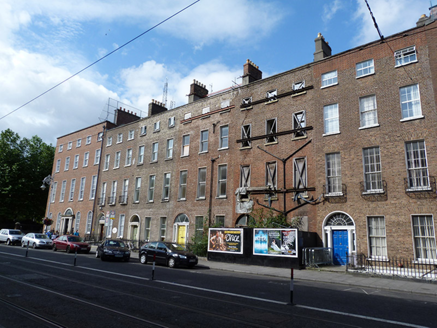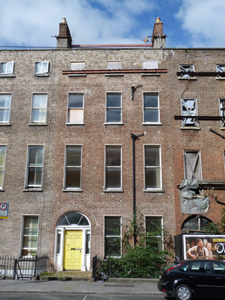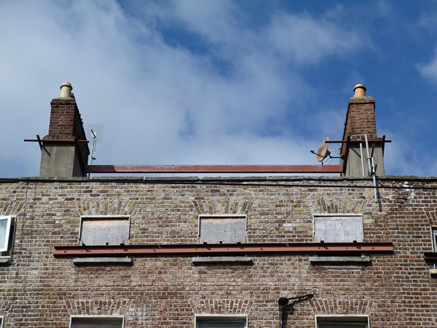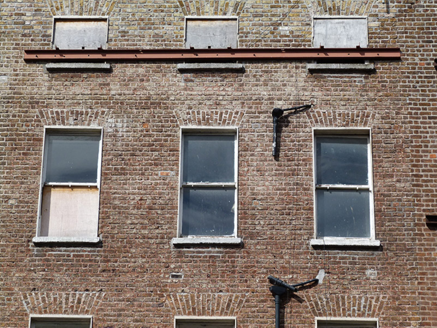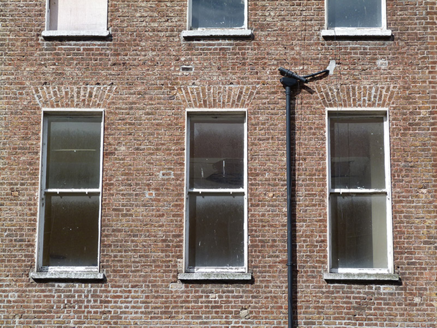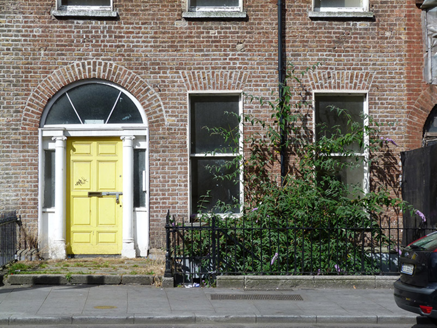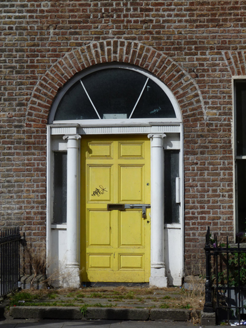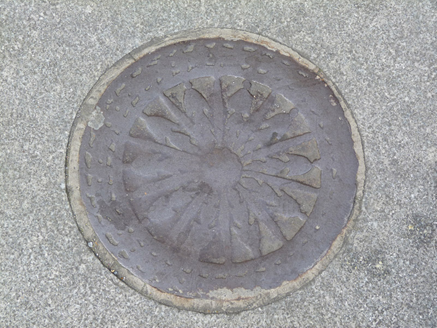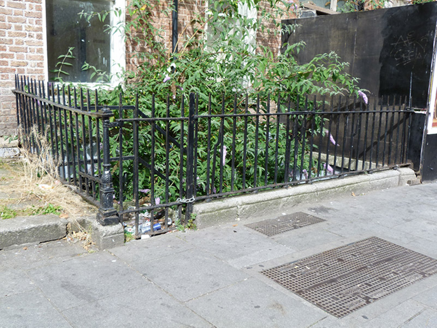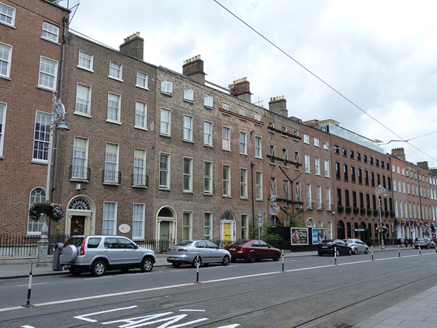Survey Data
Reg No
50920231
Rating
Regional
Categories of Special Interest
Architectural
Original Use
House
Historical Use
Apartment/flat (converted)
Date
1790 - 1810
Coordinates
315728, 233009
Date Recorded
16/08/2015
Date Updated
--/--/--
Description
Terraced three-bay four-storey over basement former house, built c. 1800, later converted into flats. Currently vacant. M-profile pitched slate roof hidden behind brick parapet with granite coping, shouldered brown brick chimneystacks with rendered lower proportions and yellow clay pots. Brown brick walls laid in Flemish bond over granite plinth course, rendered walls to basement. Square-headed window openings with masonry sills and patent reveals with one-over-one timber sliding sash windows having ogee horns. Upper floor windows blocked. Round-headed door opening with brick voussoirs, timber lined reveals, Ionic columns supporting fluted frieze and cornice, flanked by plain glass sidelights with plain fanlight over replacement timber panelled door. Granite entrance platform accessed via granite step, cast-iron railings with decorative cast-iron corner posts on carved granite plinth enclosing basement area to north. Cast-iron coal hole cover to footpath to front. Steel-bracing between chimneystacks and affixed to east elevation. Street-fronted, forming part of terraced group on west side of Harcourt Street.
Appraisal
This building was partially rebuilt in 1915 to the designs of Aubrey Vincent O’Rourke, though the Georgian appearance of the exterior is retained. Despite some loss of original fabric, it forms part of a largely cohesive group, characterised by vertical massing and narrow plot sizes. Retention of setting features such as the cast-iron railings, granite platform and coal hole cover, further enrich the streetscape. Harcourt Street was opened 1777 by John Hatch, barrister and Seneschal of the Manor of St. Sepulchre. Development was sporadic during the early history of the street but during the late 1790s Hatch, along with Messrs Wade and Whitten, obtained approval from the Wide Street Commissioners for the further development.
